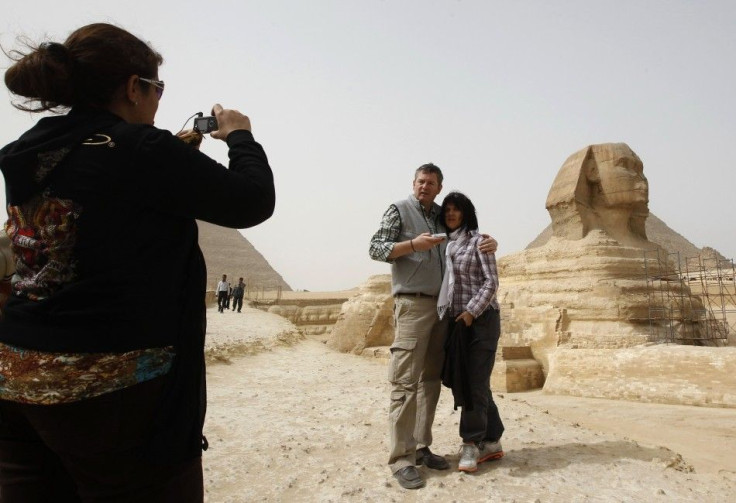Tourists Return To Egypt, But Image Problem Remains

Tourism is one of Egypt’s largest industries, so it was a big deal when the number of international arrivals plummeted by more than one-third in the year of the Arab Spring. Ongoing protests cast a dark shadow over the nation in 2012, but figures released this week suggest that the industry is rebounding, albeit at a snail’s pace.
Egyptian Tourism Minister Hisham Zaazou announced on Tuesday a 17 percent increase in 2012 arrivals and a 13 percent rise in tourism income. Though he didn’t offer any precise numbers, Reuters suggests that those figures equate to roughly 11.5 million tourists who generated about $9.9 billion.
“We did better than anyone expected despite the problems we had,'' Zaazou told the news outlet at a conference on tourism in Cairo.
While certainly positive for Egypt’s badly battered tourism industry, the math represents a 22 percent decrease in visitors and 25 percent less revenue than in 2010, just before the onset of the Arab Spring.
Zaazou was confident, however, that Egypt would see figures close to those of 2010 by year’s end.
“We hope to pave the way for a comeback,” he said.
In January 2011, a political uprising led to the overthrow of Hosni Mubarak and adversely affected the nation’s image around the globe. Once known for its pyramids, Nile River cruises and Red Sea beaches, many saw Egypt as a hostile place during the Arab Spring and took their tourism dollars elsewhere.
The effect was devastating. Tourism had previously accounted for around 10 percent of the country’s income and 12 percent of Egyptian employment, but fewer tourists has meant lower foreign revenue and higher unemployment.
Sectarian strife and frequent labor demonstrations have stalled any substantial rebound, while a spate of kidnappings in the Sinai Peninsula have further hindered the nation’s image abroad. Several countries now advise their citizens against travel to portions of Egypt, including most of the Sinai Peninsula and areas of the lower Nile, because criminals have specifically targeted foreign tourists.
But it’s not all security concerns. Some have simply avoided the country over fears that the rise of the Muslim Brotherhood in Egypt’s recent presidential elections would mean the end of bikinis and alcoholic beverages at the beach.
Egypt may capture the popular imagination for its pharaonic ruins, but it’s beach tourism that makes up the majority of the industry's revenue. Roughly 14.7 million tourists visited Egypt in 2010, and about 11.1 million of them came from Europe, mostly on package tours to Red Sea resort cities like Sharm el-Sheikh and Hurghada. Others came from places like Saudi Arabia in search of social freedoms and the chance to share time on a non-segregated seashore.
Though the coastal resorts were braced for the worst, little has changed since Morsi took office.
Egypt faces a delicate balance that's familiar in places like the United Arab Emirates and the Maldives -- Muslim nations where tolerating foreign holidaymakers and avoiding religious backlash are touch and go.
With investment in the country drying up, foreign currency reserves plummeting and unemployment soaring along with inflation, tourists may just be Egypt's biggest savior -- if the country's internal conflicts don't scare them away.
© Copyright IBTimes 2024. All rights reserved.






















